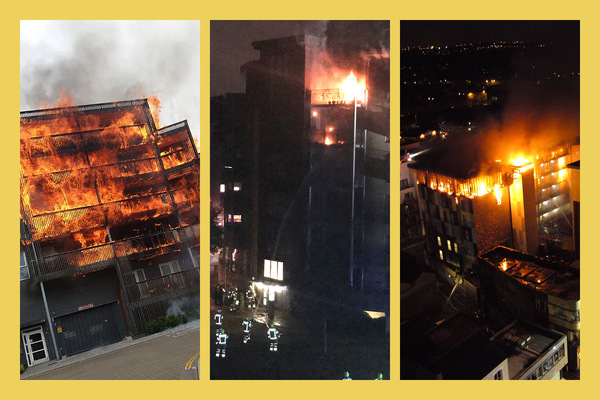You are viewing 1 of your 1 free articles
Large housing association reveals £30,000-a-week waking watch bill for single development
A major London housing association has been forced to fork out around £30,000 a week to pay for 24/7 fire safety patrols in one of its London developments, Inside Housing can reveal.
Helen Evans, chief executive of Network Homes and chair of the G15, told Inside Housing that the organisation was currently paying the fee for patrols, also known as a waking watch, while investigations into the cladding system and other fire safety issues at the west London scheme took place.
If paid over a full year, the bill would be upwards of £1.5m to keep patrols at the 450-home development.
Ms Evans, who was speaking in her first full interview as G15 chair, said: “This bill is just for an interim measure while we investigate first-draft findings from advice of our fire safety advisors – that’s one scheme, seven buildings.
Read the full Helen Evans interview here
“The waking watch is the least of it because that is the revenue expenditure happening now. The capital costs or the overall costs of remediation [will be high]. We have put a range of figures in front of the board.”
The comments from Ms Evans reveal the huge fire safety costs currently facing housing associations across the country.
In London, the issue is particularly acute due to the large number of high rises associations in the capital own. In total, the G15 landlords own 1,145 blocks over 18m. Ms Evans said that dealing with fire safety issues was top of her priority list as G15 chair.
Network owns a total of 58 buildings over 18m, almost all of which having some type of cladding system. The organisation is now employing independent companies to provide reports on these buildings, with the association prioritising the tallest and most at-risk buildings.
Ms Evans said that Network’s experience so far had been that intrusive surveys on their blocks were finding issues in almost every case.
The experience chimes with other London-based housing associations, such as Hyde which found fire safety issues in all 86 of its high-rise blocks.
Earlier this year, the G15 estimated that the total cost of fixing fire safety issues across their stock over 18m could be as high as £6.9bn.
Ms Evans confirmed that associations would be pursuing contractors for some of these costs in certain situations.
She said: “There are questions to be asked about the construction sector.
“How can it be that with a commissioning housing association, a developer, a contractor, two sets of employer’s agents, two sets of clerks of works, full insurance and full building control sign-off, that these buildings are so defective?”
Housing associations in London are also being adversely impacted by the government’s advice on combustible materials in external wall systems. Advice Note 14 which calls on building owners to check for and remove non-ACM combustible materials, is wreaking havoc for flatowners who are having their properties valued at £0.
This is preventing them from selling their flats or remortgaging and, according to the G15, has so far impacted 650 families living in their homes.
Ms Evans said: “The first thing is we need guidance on the guidance. Advice Note 14 is clearly being differently interpreted in different places, and there is huge variation in likely financial impact of required remediation if you take one interpretation compared to another.”











